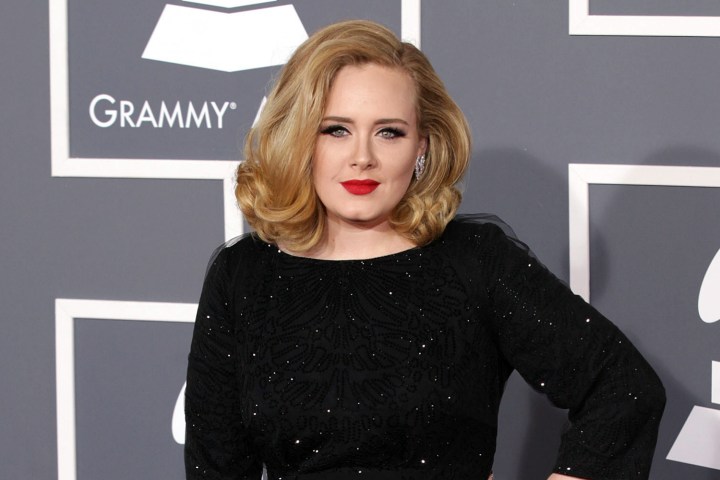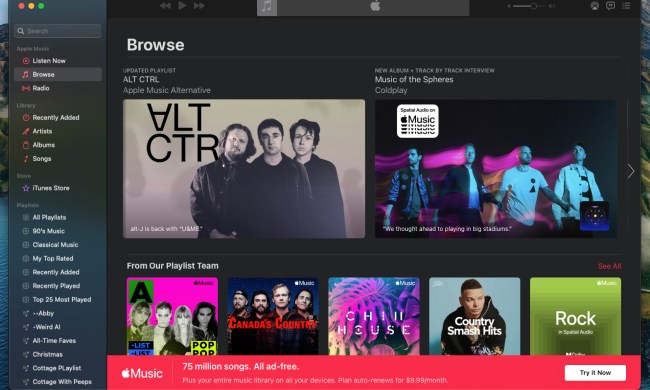
Move over Taylor Swift: British phenom Adele is, by far, the biggest thing in popular music.
A 27-year-old from Tottenham, England, the songstress’ new record 25 has not only become the highest-selling record of the year in just over a week, it’s also the highest-selling debut since Billboard/Nielsen Music began tracking album sales way back in 1991. The album broke the record for biggest debut week (previously held by *N’Sync) in under four days, with 2.43 million copies sold. By weeks end, 25 had sold another million copies to become the biggest album of the year, for total sales of an astonishing 3.38 million copies in just seven days.
To put that into more meaningful perspective, here’s a sobering fact: 41 percent of all the physical and 49 percent of all digital records sold in the United States last week were attributed to 25, according to Billboard. That’s a staggering 355 copies sold per minute, and more than double the sales of the rest of the debut album charts combined.
And so, as it turns out, last week’s Saturday Night Live parody sketch about a family at Thanksgiving who only gets along when Adele is playing, was hinting at some very real empirical data.
The singer’s overwhelming success across so many demographics is something of a mystery, but there’s a good bet it has a a lot to do with her musical style. In songs which marry vintage R&B vocals with modern, often-brooding themes of love, the music maintains a more organic feeling than other modern pop songs, yet it’s as catchy as any earworm on the radio. With such a winning formula, Adele crafts a sound and image which easily endears itself to multiple generations of listeners. And that formula has worked in spades.
Fans across the world seemed to be hooked on Adele, almost from the get-go. At the 2012 Grammy Awards the singer took home every award — all six — that she was nominated for that year while promoting her second album 21; a list that included Album of the Year, Best New Artist, Record of the Year, and Song of the Year. That’s a whole lot of love.
In fact, 21 — which has already sold more than 11 million copies in the U.S. and over 30 million worldwide, according to Billboard — leapt back into the charts alongside 25, garnering the number 9 spot during the same week as her latest debut. That figure implies that her massive fanbase is actually growing — or at least feeling nostalgic.
Perhaps most striking, Adele did all of this without the aid of streaming services. The world’s biggest streaming platforms, including Apple Music and Spotify, were denied access to 25, which is burning up digital sales on iTunes, Amazon, and various other music marketplaces instead. (Incidentally, those looking for a streaming loophole can find the album on Internet radio sites like Pandora, which operate under different licensing laws, similar to terrestrial radio stations.)
It’s a bold move, and one that only the top tier of music artists can even consider. In fact, in what might be a telling fact about the clout of major artists, the two biggest-selling albums of the past two years — Adele’s 25 and Taylor Swift’s 1989 — are both absent from services that offer free, ad-based, streaming.
But what makes Adele unique in her decision is that other chart-toppers — including Swift, Drake, Rihanna, and Dr. Dre — do offer their songs on at least one or more subscription streaming services, and have inked deals with specific companies — Spotify, Apple, or Tidal, among them — to have exclusive streaming rights to their music. The fact that Adele has the power to simply refuse those deals altogether is a massive anti-streaming statement that most artists can’t afford to make.
But, as Adele has soundly proven, if you’re the biggest pop artist of your generation people are going to eat up your music, regardless of the particular plate on which it’s served.



